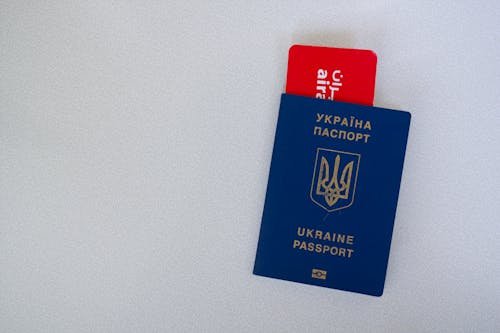Understanding Visa Categories: Which One Is Right for You?
Navigating the complexities of visa applications can be a daunting task, but understanding the different categories available can make the process much more manageable. Whether you’re planning to travel, work, study, or join family abroad, selecting the right visa is crucial. This guide will help you understand the various visa categories, their requirements, and how to determine which one is right for you.
1. Tourist and Visitor Visas
Overview
Tourist and visitor visas are designed for individuals who wish to visit a country for a short period for leisure, tourism, or visiting friends and family. These visas typically do not permit the holder to engage in employment or business activities.
Common Types
- B-2 Visa (U.S.): For tourists, those visiting family or friends, or seeking medical treatment in the United States.
- Schengen Visa (Europe): Allows travel within the Schengen Area for up to 90 days within a 180-day period for tourism or family visits.
- ETA (Australia): An Electronic Travel Authority for short-term visits for tourism or business visitor activities.
Requirements
- A valid passport
- Proof of sufficient funds to cover the stay
- Return or onward travel ticket
- Proof of accommodation
- Travel itinerary
Who Should Apply?
Tourist and visitor visas are ideal for short-term travelers who do not intend to work or study during their stay. These visas are typically easier to obtain compared to other types.
2. Student Visas
Overview
Student visas are for individuals who wish to pursue academic studies, language courses, or vocational training in a foreign country. These visas often come with certain conditions, such as the requirement to be enrolled in a recognized institution and to maintain a full-time course load.
Common Types
- F-1 Visa (U.S.): For full-time students enrolled in an accredited institution in the United States.
- Tier 4 (General) Student Visa (UK): For students aged 16 and over who have been offered a place on a course by a licensed student sponsor.
- Student Visa (Australia): For international students enrolled in a registered course of study in Australia.
Requirements
- Acceptance letter from an educational institution
- Proof of financial capability
- Health insurance (in some countries)
- Proficiency in the language of instruction
- Passport-sized photographs
Who Should Apply?
Individuals who have been accepted into a full-time educational program and plan to stay in the host country for the duration of their studies should apply for a student visa. These visas often allow for part-time work under certain conditions.
3. Work Visas
Overview
Work visas are for individuals who wish to engage in employment or professional activities in a foreign country. These visas vary widely depending on the type of work, duration of stay, and the specific regulations of the host country.
Common Types
- H-1B Visa (U.S.): For specialized workers in fields such as IT, engineering, and medicine.
- Skilled Worker Visa (UK): For individuals with a job offer in the UK from an approved employer.
- Temporary Skill Shortage (TSS) Visa (Australia): For skilled workers to fill short-term positions.
Requirements
- job offer from an employer
- Proof of qualifications and work experience
- Labor market testing (in some countries)
- Employer sponsorship
- Health and character assessments
Who Should Apply?
Professionals with a job offer from a foreign company and the necessary skills and qualifications should apply for a work visa. These visas often come with the possibility of renewal or transition to permanent residency.
Read More: How to Successfully Apply for Permanent Residency?
4. Family and Spouse Visas
Overview
Family and spouse visas are designed to allow individuals to join their family members who are residents or citizens of the host country. These visas facilitate family reunification and often lead to permanent residency.
Common Types
- K-1 Visa (U.S.): For fiancés of U.S. citizens to enter the United States and marry their partner.
- Family Reunion Visa (Germany): For spouses, minor children, and parents of minors to join their family in Germany.
- Partner Visa (Australia): For spouses or de facto partners of Australian citizens, permanent residents, or eligible New Zealand citizens.
Requirements
- Proof of relationship (marriage certificate, birth certificate, etc.)
- Sponsorship by the resident/citizen family member
- Evidence of cohabitation (in some cases)
- Proof of financial support
Who Should Apply?
Individuals who wish to join their spouse, children, or parents in a foreign country should apply for a family or spouse visa. These visas are critical for maintaining family unity and often come with fewer restrictions compared to other visa categories.
5. Business and Investment Visas
Overview
Business and investment visas cater to entrepreneurs, investors, and business executives who wish to start or expand their business ventures in a foreign country. These visas are designed to attract foreign capital and expertise.
Common Types
- E-2 Visa (U.S.): For investors from treaty countries who invest a substantial amount in a U.S. business.
- Innovator Visa (UK): For experienced businesspersons seeking to establish an innovative business in the UK.
- Business Innovation and Investment Visa (Australia): For investors and business owners willing to invest in Australia.
Requirements
- Proof of substantial investment
- Business plan
- Evidence of entrepreneurial experience
- Financial statements
- Employment creation (in some cases)
Who Should Apply?
Entrepreneurs and investors with the capital and experience to start or expand a business in a foreign country should consider applying for a business or investment visa. These visas often lead to permanent residency and offer opportunities for significant economic contributions.
6. Permanent Residency Visas
Overview
Permanent residency visas allow individuals to live, work, and study in a foreign country indefinitely. Permanent residents enjoy many of the rights and privileges of citizens, except for voting and holding public office.
Common Types
- Green Card (U.S.): Allows permanent residency in the United States through various pathways such as family sponsorship, employment, and the Diversity Visa Lottery.
- Permanent Residence Card (Canada): For individuals who qualify under the economic immigration programs, family sponsorship, or as refugees.
- Permanent Resident Visa (Australia): For skilled workers, family members, and special eligibility streams.
Requirements
- Proof of continuous residency
- Employment history
- Health and character assessments
- Language proficiency (in some countries)
- Compliance with visa conditions
Who Should Apply?
Individuals seeking to establish long-term residency in a foreign country, with the intention of integrating into the local community and possibly seeking citizenship, should apply for a permanent residency visa. This is often a step towards becoming a naturalized citizen.
7. Refugee and Asylum Visas
Overview
Refugee and asylum visas provide protection to individuals who are fleeing persecution, conflict, or violence in their home countries. These visas are granted based on humanitarian grounds and international treaties.
Common Types
- Refugee Visa (U.S.): For individuals outside the U.S. who are referred by the United Nations High Commissioner for Refugees (UNHCR) or a U.S. embassy.
- Asylum Visa (UK): For individuals already in the UK who cannot return to their home country due to fear of persecution.
- Protection Visa (Australia): For individuals seeking asylum who are in Australia or arriving in Australia.
Requirements
- Proof of persecution or fear of persecution
- Personal testimony and supporting documents
- Screening and security checks
- Health assessments
Who Should Apply?
Individuals who are at risk of persecution in their home countries due to race, religion, nationality, political opinion, or membership in a particular social group should apply for refugee or asylum visas. These visas provide a pathway to safety and stability.
Choosing the Right Visa
Assessing Your Purpose
The first step in choosing the right visa is to clearly define your purpose for traveling. Whether it’s for tourism, study, work, joining family, starting a business, seeking permanent residency, or fleeing persecution, your purpose will dictate the type of visa you should apply for.
Researching Visa Options
Each country has its own set of visa categories, requirements, and application processes. Research the visa options available in the country you wish to visit and compare them to your personal circumstances and goals.
Consulting with Experts
Visa applications can be complex and require thorough preparation. Consulting with immigration lawyers, visa consultants, or using government resources can provide valuable guidance and increase your chances of a successful application.
Preparing Your Application
Gather all necessary documentation, including identification, financial statements, proof of purpose, and any other required materials. Ensure that all documents are accurate and up-to-date to avoid delays or denials.
Conclusion
Understanding the different visa categories and their requirements is essential for a successful visa application. Whether you’re traveling for leisure, education, work, family reunification, business, permanent residency, or asylum, choosing the right visa can open the door to new opportunities and experiences. By assessing your purpose, researching your options, consulting with experts, and preparing thoroughly, you can navigate the visa application process with confidence and ease.






